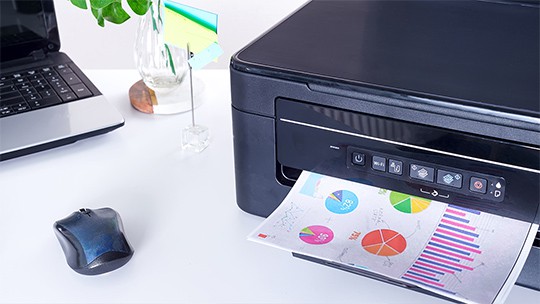Whether you’re looking to sell your business or simply want to gauge the overall value of the organization as a whole, this article will teach you what factors to consider in order to accurately value your business. If you’re selling, this is important for the best asking price, and your prospective buyers will want to know what makes your business valuable. You can also use this information to see just how much your business has grown, what your expenses are, how much you’re making, and what the value of your business’s assets are. Follow this guide to properly value your business.
Assets
First, let’s talk about your company’s assets. This is important to a buyer because they’ll want to know if your company has anything of worth at its disposal, rather than just how much money it makes on an annual basis. Starting with your tangible assets like real estate or inventory, calculate the net value of each asset and include that number in your detailed report. You’ll probably need to do some extensive research, but taking time and care during this step ensures the highest accuracy and a happier buyer. Transparency is the best way to get the best buyers!
Now that you’ve calculated the value of your business’s tangible assets, it’s time to consider the intangible assets. What are intangible assets? Simple; they’re your copyrights, intellectual property rights, your customer loyalty, etc. These are things you can’t physically touch, but that still offer value to the company. Maybe you’ve created a new machine that you hold the patent for; that patent can add value to the business as a whole.
We’ve calculated the value of our assets and factored them into the overall value fo the business. Now what? Next, we’re going to take a look at our expenses and debts and subtract them from our profits.
Expenses and Debt
Expenses and debt can lower your business’s value significantly, especially if you’re buried in unsecured debt like business credit cards or loans. Typically, a business that’s buried in debt isn’t exactly an attractive prospect for a buyer/investor. It’s like buying a house and taking on the extra debt of the previous homeowner; it’s simply not practical and involves many risks for the buyer.
Take a close look at the money your business owes. Do you have credit card debt, business loan debt, or other money borrow for the sake of improving/expanding the business? If you owe too much, it’s probably a better idea to pay off most of that debt before trying to sell. However, if you still decide to list the business, it’s your responsibility to inform the buyer of any outstanding business debts.
Aside from debts, you’ll need to factor in your expenses as well. Subtract these from your profits, and you’ll get an accurate picture of what your business’s net profit is. Expenses include everything that your business spends money on. Taxes, travel, wages, benefits, maintenance, marketing, and rent all factor in as expenses. Your buyer will want to know everything that’s costing the business money, as well as the impact those expenses have on the profitability of the business.
Once you’ve calculated your debts and expenses, you can combine them with your asset value to get an idea of what your business is worth. If the number is less than you might have liked, don’t be surprised; making a profit doesn’t necessarily mean the business is valuable as a whole.
If you’re having trouble with this part of the process, you can learn how to sell your business with sites like Businessexits.com, or hire a broker to assist you with valuing your assets.
Customers
The number of customers you have, as well as their loyalty to your brand, can say a lot about the value of your business. If you have thousands of customers who specifically use your brand, you’re a valuable asset to the industry, and, therefore, are more attractive to potential buyers. Customers form an important part of a business’s value, and your buyers will want to know more about how you serve them and whether or not you’re attracting enough new customers each year to continue growing.
Industry Trends
Finally, you’ll need to take a close look at industry trends. This will determine how your business could potentially perform in the coming years, which is certainly something a buyer will want to know. Since they’re planning for the future, a buyer will need to have some knowledge of the industry, but it’s up to you to provide them with accurate industry-specific information.
Pay attention to past trends and your place in the industry. Is your business an authority in its industry, or an up-and-comer? Does it show the potential for continued growth in its industry? These are all questions you should have answered before the buyer asks them.
Thanks for reading this article. If you're new here, why don't you subscribe for regular updates via RSS feed or via email. You can also subscribe by following @techsling on Twitter or becoming our fan on Facebook. Thanks for visiting!

















































































































































































